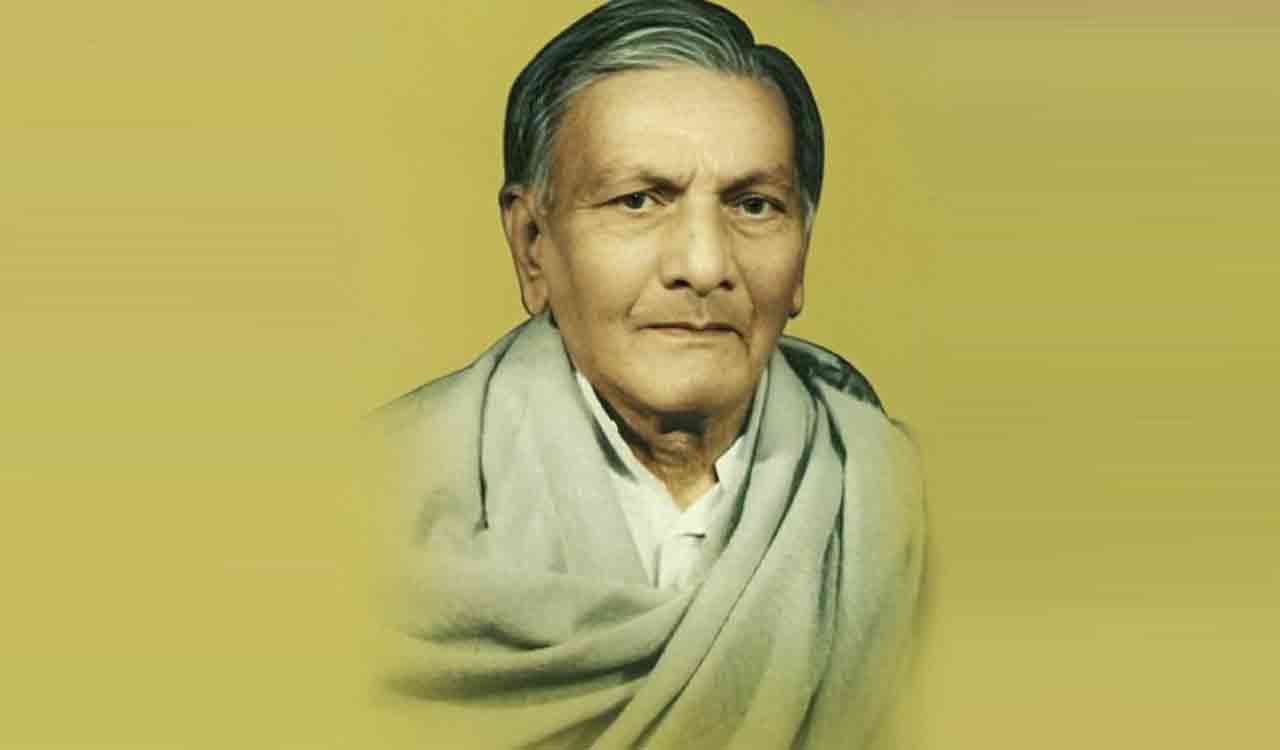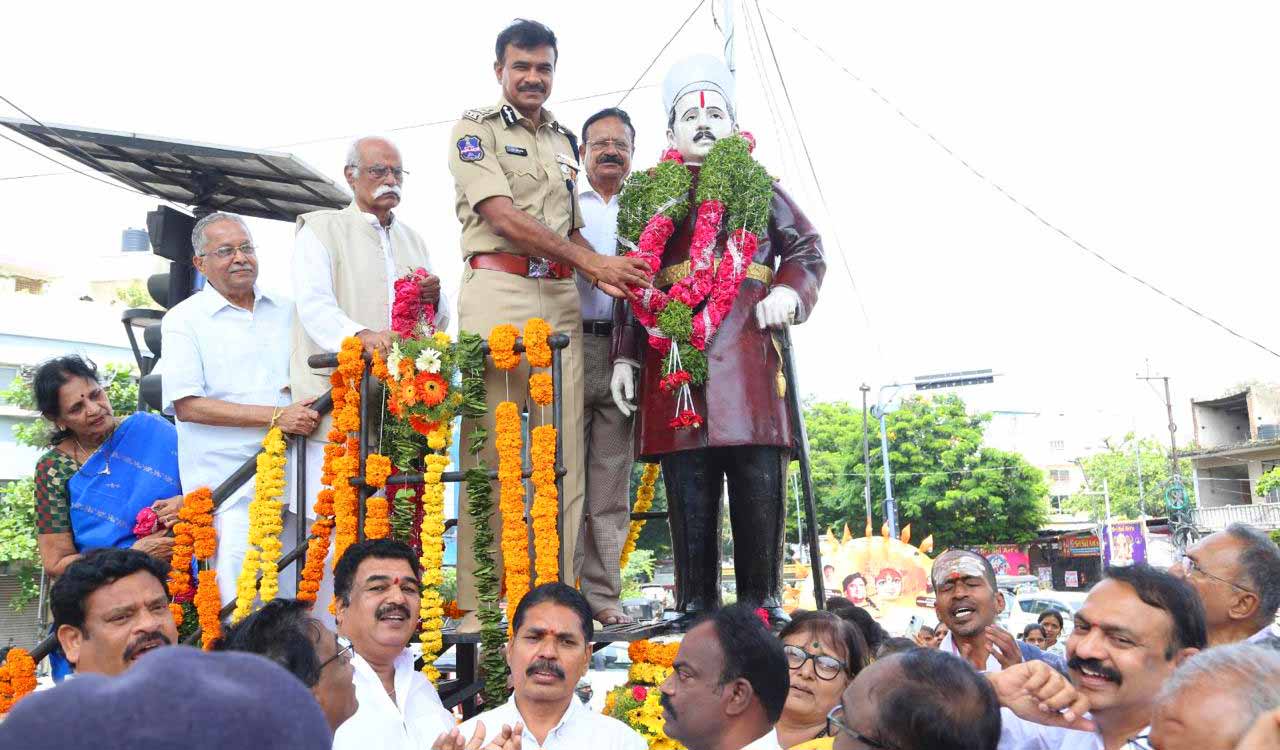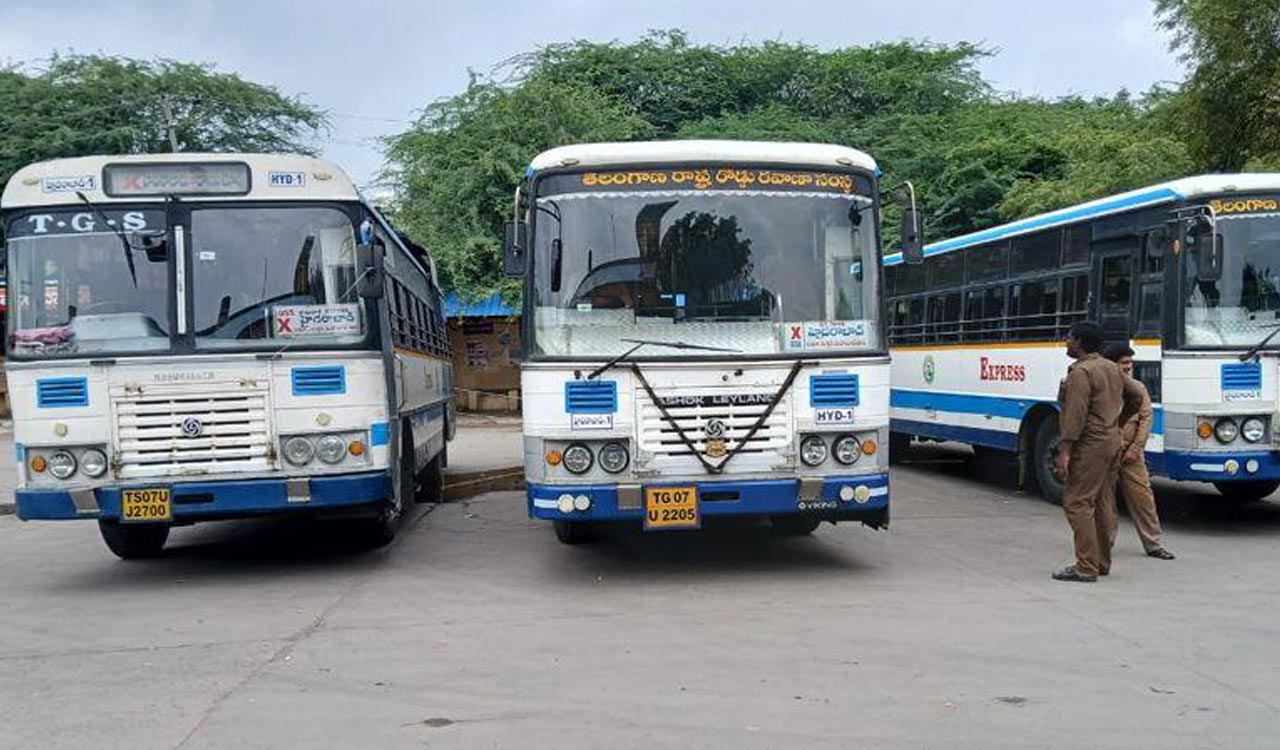Remembering Nizam’s first Hindu Kotwal Raja Bahadur Venkat Rama Reddy on his 156th birth anniversary
Raja Bahadur Venkat Rama Reddy, Hyderabad’s first Hindu Kotwal, modernised policing and maintained communal harmony under the Nizam’s rule. A philanthropist, he also founded schools, colleges and hostels that empowered women and rural students. His legacy continues through police and educational institutions
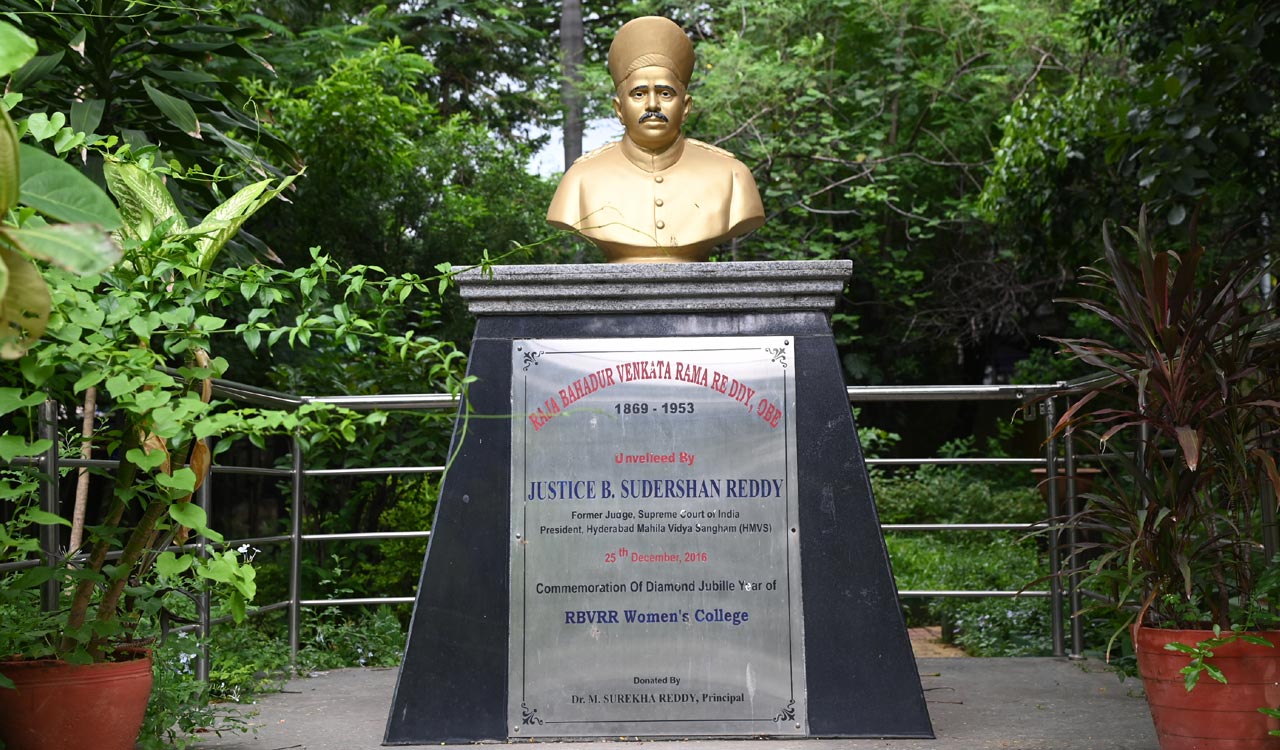
Hyderabad: Even before Hyderabad became a tech hub with a cosmopolitan culture, the city under the Nizam’s rule was grappling with demands of modernisation, law enforcement and civic order. With a diverse population, the Nizam administration had a tough time dealing with law and order situations due to communal flare-ups.
Raja Bahadur Venkat Rama Reddy (RBVRR), the first Hindu Kotwal (Commissioner of Police) in the Nizam’s government, made a huge difference in how the police force worked in the city, maintaining tranquillity and communal harmony. After entering the police service at the age of 18, Reddy was elevated from Sub-Inspector of Police to Hyderabad’s Kotwal by the Nizam’s government.
With a diverse population in Hyderabad, Reddy as the 14th Hyderabad Kotwal was tasked not just with maintaining law and order in the city but also with fostering good relations among all sects of people.
When Reddy took charge, the police system was not well organised. He brought several key changes, including training for all police officers, strict rules and better connection with people. These changes, along with Reddy’s strong command over police administration, tackled communal problems efficiently and helped maintain communal harmony. As trade unions called for a strike during his tenure, the first Hindu Kotwal diligently tackled the issue, ensuring that the strike was withdrawn.
Among people and officers alike, Hyderabad’s 14th Kotwal was known as a fair, kind and upright officer. People trusted him as he handled problems without bias and worked for the betterment of all communities.
Apart from his police job, he was entrusted with about 31 other responsibilities, including member of the legislature, examiner of municipal, judicial and revenue officers, member of the City Improvement Board, member of the Committee for Prevention of Plague and member of the Agriculture Development Society.
After serving for 14 years, Reddy left behind a police system that was more organised and respected till date. He was also the architect behind the City Police Act of 1938.
Recognising his services and personality, the Nizam’s government honoured Reddy with the Raja Bahadur title. Later, King George of England conferred the title of ‘Order of British Empire’ on Reddy for resolving issues of Indian labour.
In a tribute to Reddy, the State government renamed the Police Academy as the RBVRR Telangana Police Academy. In addition, the Late Raja Bahadur Venkat Rama Reddy Gold Medal and a cash prize were instituted by the government to award outgoing probationary deputy superintendents of police in every batch. Celebrations have been planned for the 156th birth anniversary of Late Raja Bahadur Venkat Rama Reddy on Friday (August 22).
Empowering women through education
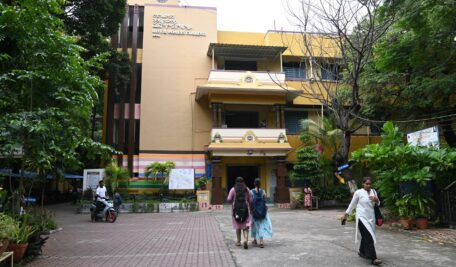
Raja Bahadur Venkat Rama Reddy Women’s College.
Most people of Hyderabad know Raja Bahadur Venkat Rama Reddy (RBVRR) as a police officer. However, his contributions to the field of education and to empowering women as a philanthropist and social worker were immense and inspiring.
During his police service, Reddy supported several schools and encouraged better educational opportunities for children from all communities. He personally funded many educational institutions, particularly those serving economically weaker sections.
Recognising the need to impart modern education to girl children and women, Reddy established primary and secondary schools with an aim to increase female literacy. He donated funds, helped secure land for school buildings and believed education should not be restricted to any caste or gender.
Reddy’s efforts led to the founding of the Raja Bahadur Venkat Rama Reddy Women’s College, one of the first colleges dedicated to women’s education in Hyderabad, in 1954. As president of the managing committee of the girls’ high school, he secured centrally located land for the college building where it stands today.
Other educational institutions established by Reddy or with his help include Madapati Hanumantha Rao Girls High School and Andhra Vidyalaya for Boys. Currently, the RBVRR Educational Society runs various institutions, including a degree, pharmacy and technology college, imparting education to thousands of students.
Reddy Hostels gave prominent personalities
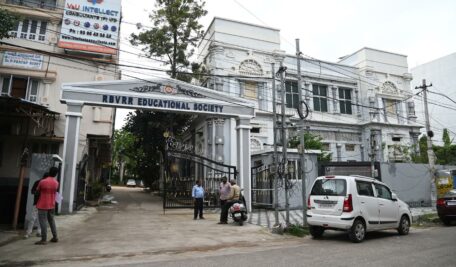
Reddy Hostels
For generations, Reddy Boys’ and Girls’ hostels have played a crucial role in shaping the lives of several thousands of students, particularly those from rural areas of Telangana and the then Andhra Pradesh.
Recognising the need to provide facilities for rural students to pursue studies in Hyderabad, Raja Bahadur Venkat Rama Reddy, along with others, established boys’ and girls’ hostels in 1918 and 1933 respectively. Irrespective of caste, the Reddy hostels have extended accommodation and boarding facilities to students to continue their education in Hyderabad.
Located in Narayanaguda, the hostels have produced some of the finest professionals, civil servants and politicians. Some noted personalities include Padma Vibhushan Ravi Narayana Reddy, Dr M Chenna Reddy (former Chief Minister), Chief Justice Kumariah, Supreme Court former Judge Justice Konda Madhava Reddy, UP former Chief Secretary KI Vidyasagar and Justice A Seetharama Reddy.
Following the success of the boys’ hostel, a girls’ hostel was also established that nurtured many women, including parliamentarian Arutla Kamala Devi and other prominent academicians.
Raja Bahadur led a humble life
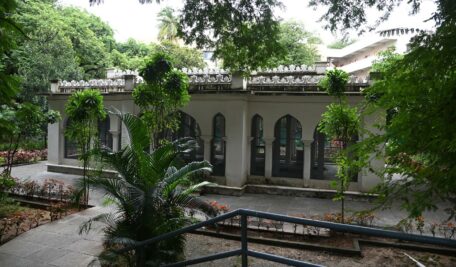
Samadhi of Raja Bahadur Venkat Rama Reddy
Born on August 22, 1869, into a middle-class family in Rayanpeta in Wanaparthy district, Raja Bahadur Venkat Rama Reddy’s childhood was not an easy one. He lost his parents early and completed his education in Rayanpeta.
He was brought up by his uncle William Wahab, who worked as superintendent of police in Raichur district, and had a great influence on him.
After the passing of his uncle, Reddy joined the police service at the age of 18. From Sub-Inspector of Police, he rose to the rank of Kotwal and served for 14 years. It is said Reddy did not earn money for himself but donated all his earnings to institutions for the welfare of students.
It is also said Reddy lived a humble life and had only Rs 50 at the time of his death in 1953.
Related News
-
Odisha government reviews protection of Lord Jagannath temple lands
2 hours ago -
Iran holds military drills with Russia as US carrier moves closer
2 hours ago -
This is taxpayers’ money: Supreme Court raps freebies culture
3 hours ago -
Hyderabad: Residents oppose Gandhi Sarovar Project over ‘forcible’ land acquisition
3 hours ago -
Australia level series as Indian women slide to 19-run defeat in second T20I
3 hours ago -
Karnataka beat Uttarakhand in semis, to face Jammu and Kashmir in Ranji final
3 hours ago -
Five Osmania varsity players in South Zone squad for Vizzy Trophy
3 hours ago -
Disciplined West Indies bundle out Italy with ease, tops Group C in T20 WC
3 hours ago

